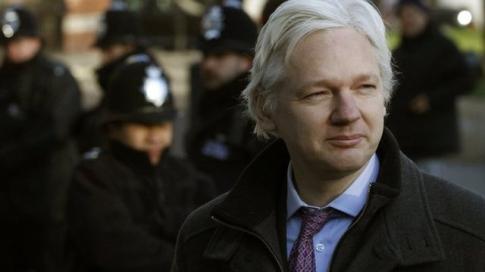Julian Assange warrant bid fails

At the hearing in Stockholm District Court, prosecutors demanded that the warrant, issued in late 2010, should be upheld to secure Assange's return to Sweden.
Julian Assange on Wednesday lost a court bid to get an arrest warrant against him scrapped, leaving the WikiLeaks founder marooned in the Ecuadoran embassy in London where he sought refuge more than two years ago.
The 43-year-old Assange fears extradition to Sweden to face allegations of rape and sexual molestation, which he denies.
At the hearing in Stockholm District Court, prosecutors demanded that the warrant, issued in late 2010, should be upheld to secure Assange's return to Sweden.
They rejected Assange's suggestion that they question him in London.
"It would involve questioning a number of people a second or third time, among them possibly Mr Assange," prosecutor Marianne Ny told a press conference.
"To what extent this questioning can be carried out with the help of judicial assistance from our colleagues in Britain is difficult to say."
'We will appeal'
Assange's defence team, which had maintained that the investigation had been unreasonably long, said it would appeal the ruling.
"The last word hasn't been said yet on this," said Thomas Olsson, a member of Assange's defence team.
"We will appeal this, and we expect it to change."
The WikiLeaks founder sought refuge with Ecuador in June 2012 after exhausting all legal options in British courts to avoid being extradited to Sweden.
He has said he fears that his being sent to Sweden would be a pretext for his transfer to the United States, where WikiLeaks sparked an uproar with its publication of thousands of secret documents.
Ecuador Foreign Minister Ricardo Patino called the ruling "bad news".
"The government of Ecuador will not abandon its commitment to defend Julian Assange's human rights until he can get to a safe place," he said on Twitter.
Assange supporters who had assembled outside the Ecuadoran embassy in London were disappointed, but some also said they were not surprised.
"We didn't expect anything else. The US grand jury is definitely behind this," one of the supporters, Clara Torres, told AFP.
"It's the first time in history that a man wanted for questioning has had all this done to him."
WikiLeaks repeatedly drove the global news agenda with startling revelations of the behind-the-scenes activities of governments around the world.
From confidential assessments by US diplomats of Chinese leaders to revised body counts in Iraq, the WikiLeaks documents provided the public with an unprecedented look under the hood of international politics.
Assange had acknowledged that even if the Swedish prosecutors had decided to drop the case, it would only be one part of the legal battle keeping him at the embassy.
"I still have the larger problem, which is that of the United States and its pending prosecution, and perhaps extradition warrant," he told reporters in a conference call in June.
Assange has apparently not overstayed his welcome at the embassy.
Patino said in June as Assange marked two years since taking refuge there that both international agreements and Ecuador's constitution made it a "complete impossibility" for the country to turn him over.
But Assange's asylum comes with a large price tag for the British government - the cost of round-the-clock policing reached six million pounds ($11-million) at the two-year mark, Scotland Yard said. /AFP




 del.icio.us
del.icio.us Digg
Digg

Post your comment